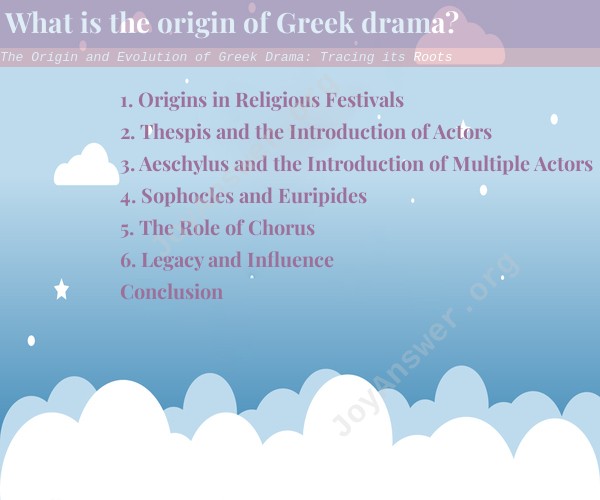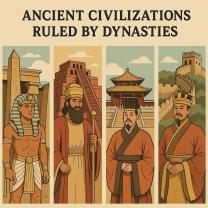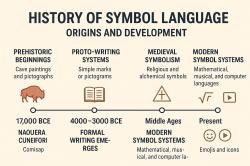What is the origin of Greek drama?
Greek drama, a cornerstone of Western theater, has a rich history that spans centuries. Its origins can be traced back to ancient Greece, where it underwent significant evolution. Let's explore the journey of Greek drama:
1. Origins in Religious Festivals
The roots of Greek drama can be found in religious festivals honoring the god Dionysus. These festivals, known as Dionysia, involved performances of songs and dances that eventually evolved into formal theatrical productions. The early performances were celebratory and often revolved around myths and legends.
2. Thespis and the Introduction of Actors
Thespis, an ancient Greek poet, is credited with introducing a key innovation to Greek drama in the 6th century BCE. He stepped out from the chorus and began to perform as an individual actor, delivering lines in a dialogue format. This marked the shift from purely choral performances to a more structured form of theater.
3. Aeschylus and the Introduction of Multiple Actors
Aeschylus, a prominent playwright of ancient Greece, further developed Greek drama by introducing a second actor to the stage. This innovation allowed for more complex interactions and dialogues between characters. Aeschylus's contributions laid the foundation for tragedy as a distinct dramatic genre.
4. Sophocles and Euripides
Sophocles and Euripides, two other renowned playwrights, continued to shape Greek drama. Sophocles, known for his Oedipus plays, added a third actor, increasing the complexity of dramatic interactions. Euripides, on the other hand, explored more diverse themes and characters, often challenging traditional norms and beliefs.
5. The Role of Chorus
The chorus, a group of performers who sang and danced, remained an integral part of Greek drama. Initially, the chorus played a central role, but its significance gradually diminished as the focus shifted to individual actors and their interactions. However, the chorus continued to provide commentary and reflection on the themes of the play.
6. Legacy and Influence
Greek drama's influence extended beyond ancient Greece. Its structure, themes, and dramatic conventions had a profound impact on the development of Western theater. Roman playwrights adapted and incorporated Greek elements into their works, and the legacy of Greek drama can be seen in the works of Shakespeare and other playwrights throughout history.
Conclusion
Greek drama's origins in religious festivals, its evolution through innovations of individual actors and multiple characters, and its enduring legacy make it a cornerstone of theatrical history. Its impact on storytelling and dramatic expression continues to resonate in modern theater and serves as a testament to the enduring power of human creativity.













